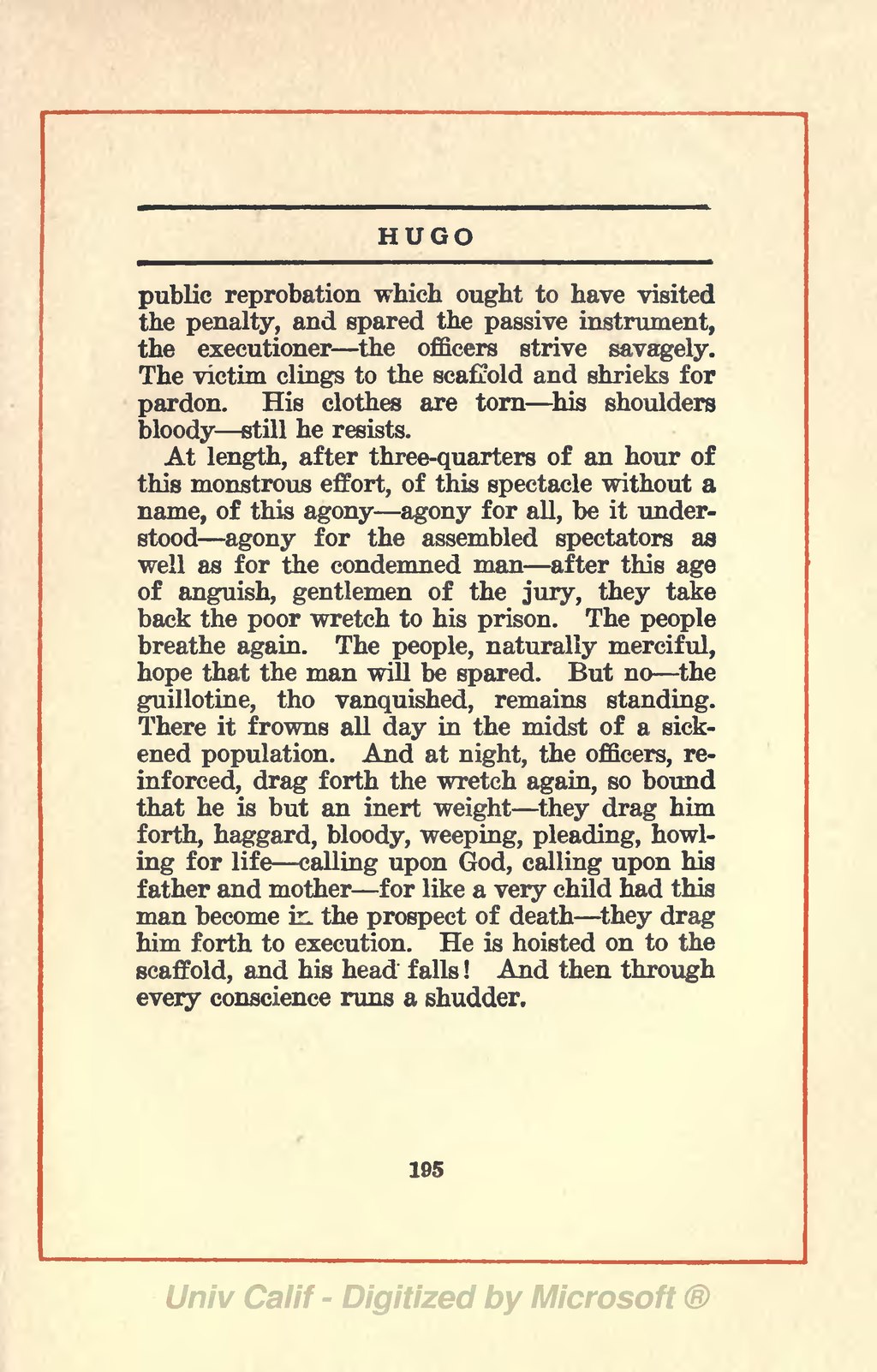HUGO
public reprobation which ought to have visited the penalty, and spared the passive instrument, the executioner—the officers strive savagely. The victim clings to the scaffold and shrieks for pardon. His clothes are torn—his shoulders bloody—still he resists.
At length, after three-quarters of an hour of this monstrous effort, of this spectacle without a name, of this agony—agony for all, be it understood—agony for the assembled spectators as well as for the condemned man—after this age of anguish, gentlemen of the jury, they take back the poor wretch to his prison. The people breathe again. The people, naturally merciful, hope that the man will be spared. But no—the guillotine, tho vanquished, remains standing. There it frowns all day in the midst of a sickened population. And at night, the officers, reinforced, drag forth the wretch again, so bound that he is but an inert weight—they drag him forth, haggard, bloody, weeping, pleading, howling for life—calling upon God, calling upon his father and mother—for like a very child had this man become in the prospect of death—they drag him forth to execution. He is hoisted on to the scaffold, and his head falls! And then through every conscience runs a shudder.
195
